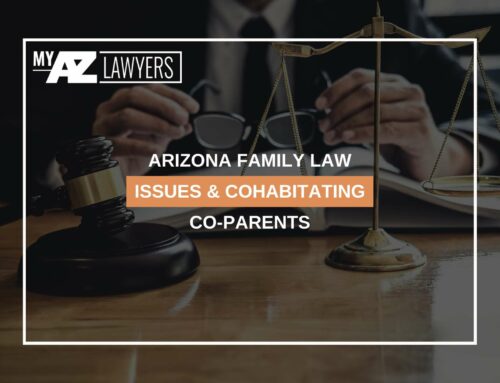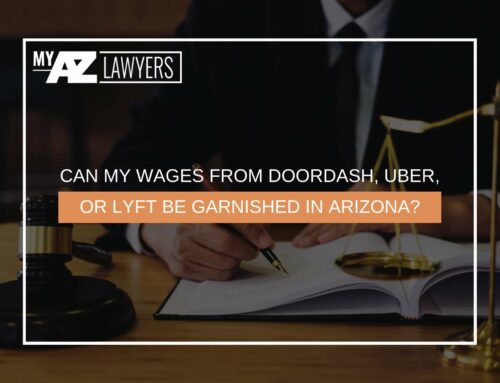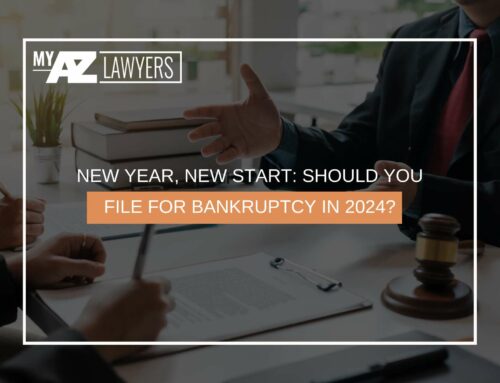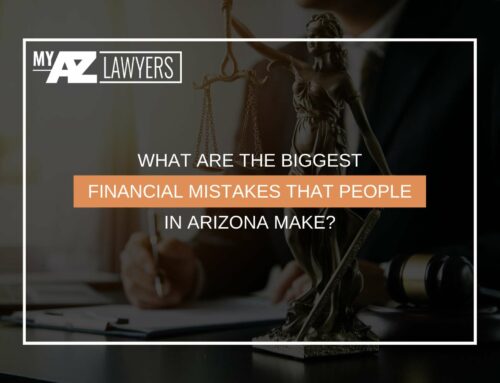Are Certificates Of Deposit Exempt In Arizona Bankruptcy?
The market has been volatile since the pandemic, and people are looking for safe and secure ways to invest their money without the fear of losing their principal. A certificate of deposit, or CD, is a guaranteed form of investment offered by most banks and credit unions. Guaranteed returns are a precious asset when other forms of investment may end up losing money. Interest rates are high, making it more expensive to invest in some areas but increases the returns on a CD. That is making CDs a more popular form of investment when the economy creates uncertainty. But CDs are far from a get-rich-quick scheme, and an investor could experience financial struggles while waiting for their account to mature. Funds from a CD are not easily accessible before maturation, and the investor can be subject to fees and penalties if they withdraw from their CD to keep creditors at bay. That doesn’t mean that they are safe from being taken by the trustee if the investor declares chapter 7 bankruptcy. Read on to learn more about what happens to a CD in chapter 7 bankruptcy in Arizona. If you have additional questions or concerns, or would like to discuss your situation with an experienced Arizona bankruptcy professional, call 480-470-1504 for your free consultation with My AZ Lawyers.
![Consultation with an [Arizona bankruptcy professional] discussing Certificates of Deposit in a chapter 7 case.](https://myazlawyers.com/wp-content/uploads/2024/05/Are-Certificates-Of-Deposit-Exempt-In-Arizona-Bankruptcy-AZ.jpg)
Can a Certificate of Deposit Be Protected in Chapter 7 Bankruptcy?
When a debtor declares chapter 7 bankruptcy, they must protect all of their assets using bankruptcy exemptions. Any bankruptcy asset without an applicable exemption could be taken by the trustee to pay off debts. Unfortunately, Arizona does not have a bankruptcy exemption specifically designed to protect certificate of deposit accounts. That leaves a potential bankruptcy debtor with funds in a CD very few options.
Some states offer a wildcard exemption, or an exemption that can be used on any asset of the debtor’s choosing. Arizona does not have a wildcard exemption available for bankruptcy debtors. The federal bankruptcy exemptions have a wildcard exemption, but debtors in Arizona aren’t given the option of using federal exemptions instead of state exemptions. There is a bank account exemption for Arizona bankruptcy debtors, but as it can only be applied to one bank account, most debtors use it for their checking account. It is a nominal exemption and is insufficient to protect significant CD investment funds. It can also be more inconvenient to surrender a checking account and all of the expenses that are paid through that debit card. That’s why, if possible, the debtor should spend the contents of their CD before filing for bankruptcy in the state of Arizona.
If a CD has already matured, a person considering bankruptcy can withdraw from the account to spend it without fees and penalties. If bankruptcy is on the horizon, the funds should be spent on reasonable purchases, like household items, medical treatments, car repairs, etc., rather than designer goods, vacations, and other luxury goods and services. The debtor could even use the funds from a CD to pay for bankruptcy filing fees and attorney’s fees. The debtor should avoid using these funds to pay off debts to insiders in favor of other creditors- for example, repaying an informal loan to your parents is considered a preferential payment that can cause issues in a chapter 7 bankruptcy case. The debtor should also avoid paying off expenses that will be cleared by a chapter 7 bankruptcy filing, such as credit card bills. For more information about reasonable spending before a chapter 7 bankruptcy filing in Arizona, call 480-470-1504 to schedule your free consultation with our firm.
Different Types Of Bankruptcy Exemptions In Arizona
- Homestead exemption: This is the exemption meant to protect a debtor’s residence, and if applicable, the land on which it is situated. The debtor should live in the home full-time if they wish to protect it with the homestead exemption. It also applies to condominiums, co-ops, and mobile homes. The value of this exemption has been on the rise in recent years due to the sharp increase in home prices in Arizona.
- Motor vehicle exemption: This exemption is meant to protect the vehicle the debtor uses to get to work, run errands, etc. A married couple can either use the exemption on two separate vehicles or combine the amount to use on one shared vehicle. If the debtor is physically disabled, or has a dependent who is physically disabled, this exemption increases to represent any special equipment that may be installed.
- Household goods and furnishings: This exemption covers a variety of items and possessions around the house, like appliances, furniture, and electronic devices. There is a separate exemption that can be used on a computer if the debtor is close to the edge for this exemption.
- Food, fuel, and provisions: With the cost of gas and groceries these days, you might as well start counting these basic necessities as assets. Arizona’s bankruptcy exemptions don’t have a set value for this category, and simply protect six months’ worth, whatever that may be for a household.
- Firearms: The firearm exemption looks to aggregate value, meaning that the debtor can protect more than one weapon using this exemption if the total value falls within the exemption.
- Household pets: While there used to be a dollar amount for this exemption, Arizona allows bankruptcy debtors to protect all of their household pets from seizure by the trustee.
- Life insurance policy: Some or all of the proceeds of a life insurance policy can be protected in bankruptcy. The money received should come from a surviving spouse or child policy. There are limitations as to how much this exemption can protect.
- Child support and alimony: If the court orders one party to pay their ex child support and/or spousal support, those payments are exempt in a chapter 7 bankruptcy case in Arizona. The parent receiving payments can file for bankruptcy knowing that these payments will not stop or be taken away by the bankruptcy trustee.
- Insurance benefits: Insurance benefits from exempt property are also exempt in bankruptcy. For example, if a housefire destroyed furniture and appliances that would’ve been protected by the household goods and furnishings exemption, these proceeds can also be exempt in chapter 7 bankruptcy.
- Retirement savings: 401(k)s, IRAs, and other ERISA-qualified retirement savings are safe in bankruptcy. However, contributions made in the 120 days prior to filing may not be covered under the exemption.
Learn More About Your Bankruptcy Options With Our Experienced Professionals
If you are considering declaring bankruptcy, there should be many items on your list of issues to consider, including whether your investments such as CDs will be exempt. No two cases are exactly the same, so if you’re hung up on your decision on if you should file, you may want to discuss your situation with a skilled bankruptcy lawyer. Our knowledgeable bankruptcy team offers free consultations by phone for your convenience, free of charge. Get the bankruptcy process rolling and have all of your questions answered by a seasoned professional. We also offer flexible payment options for eligible clients starting as low as zero dollars down. To get started today, contact us or call at 480-470-1504 to schedule your free consultation with My AZ Lawyers.

MY AZ LAWYERS
Email: info@myazlawyers.com
Website: www.myazlawyers.com
Mesa Location
1731 West Baseline Rd., Suite #100
Mesa, AZ 85202
Office: 480-448-9800
Phoenix Location
343 West Roosevelt, Suite #100
Phoenix, AZ 85003
Office: 602-609-7000
Glendale Location
20325 N 51st Avenue Suite #134, Building 5
Glendale, AZ 85308
Office: 602-509-0955
Tucson Location
2 East Congress St., Suite #900-6A
Tucson, AZ 85701
Office: 520-441-1450
Avondale Location
12725 W. Indian School Rd., Ste E, #101
Avondale, AZ 85392
Office: 623-469-6603













